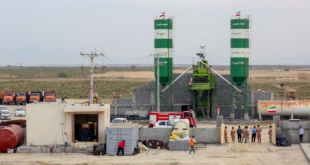 Campaigners for reform, who had packed the public gallery, broke into applause and sang the national anthem as MPs voted overwhelmingly in favour.
Campaigners for reform, who had packed the public gallery, broke into applause and sang the national anthem as MPs voted overwhelmingly in favour.
The bill, which needs to be approved by the emir of Kuwait, will cut the number of constituencies from 25 to five.
Reformers have long argued that the larger number of constituencies allowed for vote-buying.
The Emir dissolved parliament in May, saying the dispute over the bill between the previous government and the opposition was harming national security.
In the subsequent elections in June, the opposition won a majority.
Under the new constituency arrangement, each of the five districts will elect 10 parliamentarians.
New start
Sixty of Kuwaitis 65 MPs voted for the government-sponsored law to reduce the number of constituencies to five. Only two members voted against it.
All cabinet ministers present in the chamber voted for the law.
Correspondents say the vote is being seen as the start of a new chapter in the often stormy relations between the government and parliament.
The opposition, which focused its campaign for the 29 June election on the issue of the number of constituencies, won 33 of the 50 elected parliamentary seats. The other 15 seats are appointed by the emir.
Women took part in the election for the first time as voters and candidates but none won seats.
Kuwait’s parliament is considered the strongest of those in the Gulf monarchies, and the National Assembly often expresses differences of opinion with the cabinet in a robust fashion.
However the emir, Sheikh Sabah al-Ahmed al-Sabah, has the final word on most government policies and key cabinet posts are held by members of the ruling family.
 Eurasia Press & News
Eurasia Press & News



